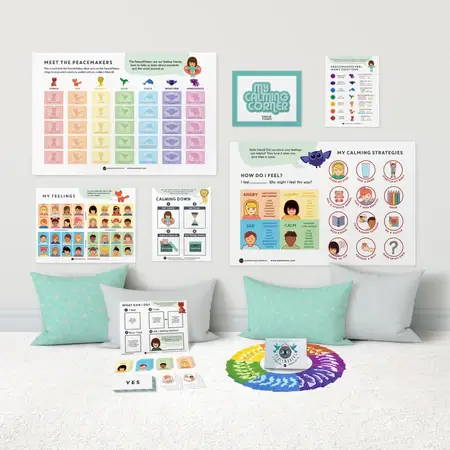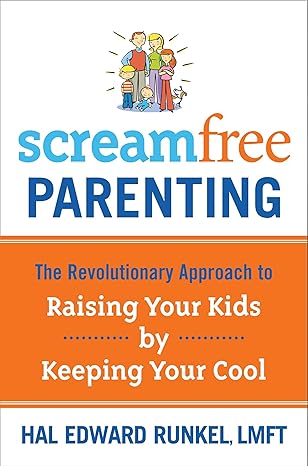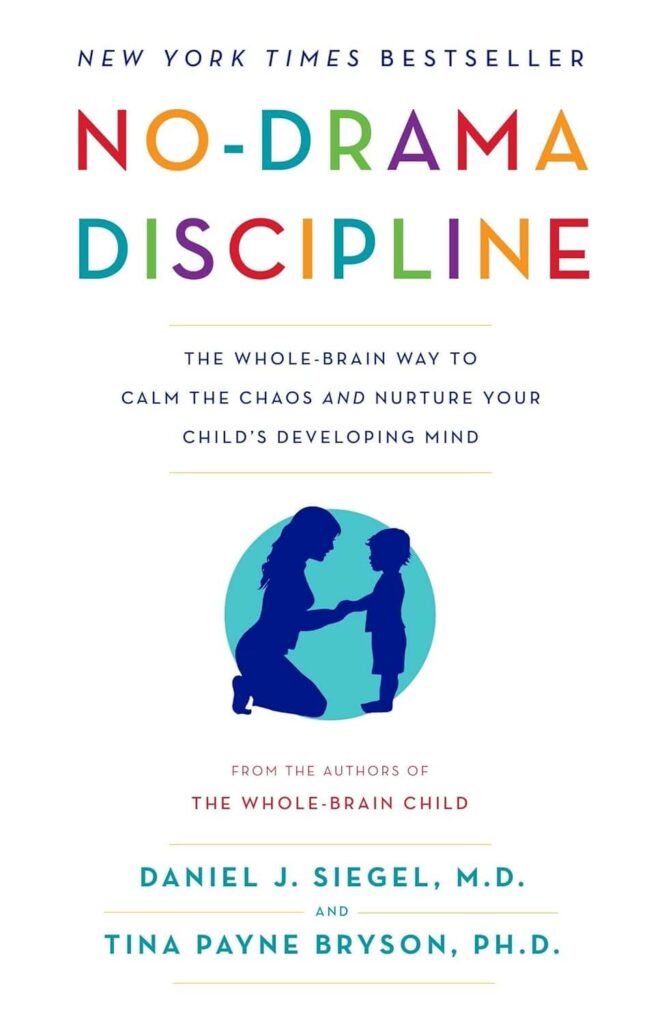Sneak peek: Yelling at your kids is not something any parent plans to do, but it happens from time to time. Research helps us learn why yelling doesn’t work for us or our kids.
Remember the last time you just “lost it” with your kids? I mean yelling at your kids, red-in-the-face…lost it.
Although I’ve read child development books and know why yelling doesn’t work, I am no exception to this particular parenting embarrassment. My kids can push my buttons like no one else…probably because I helped “install” their buttons, right? We are often more like each other than we’d like to admit.
When my older son starts seeming “ungrateful” (at least to my mind) or whiny, that’s usually my trigger.
How about you? What triggers you to become upset at your kids?
But how does yelling at your kids affect them? Does it actually make an impression or make them understand any better?
This expression of angry or frustrated emotion may have gotten your child’s attention rather quickly, but do moments like this really reinforce their memory of what you say to them?

Why Yelling at Your Child Doesn’t Work: The Science of Emotion and Listening
A recent study on vocal emotion and memory may shed some light on this topic. Although this topic did not specifically consider emotion in parents’ communication, I think the implications of this study could be applied to parenting situations.
During the study, participants listened to words spoken in either a neutral or a sad tone of voice. Later, the participants were asked to recall the words from memory. Interestingly, the results of the study showed that people tended to remember words spoken in a neutral tone better than those spoken in a sad tone. Additionally, participants remembered words spoken in a sad tone more negatively than the other words.
Related reading: Research Reveals the Real Reason Why You’re Losing Your Temper with Your Toddler
This research makes perfect sense based on what we know from previous studies. As most of us know, psychologists have shown that individuals (kids included) have a much harder time functioning well cognitively when distressing emotions like anxiety or fear flood their brains. In a nutshell, this is why yelling doesn’t work—kids are overwhelmed by emotion and won’t remember much of what you said when yelling.
This is why children consistently exposed to stress or trauma have a hard time learning. Scholars studying the impact of poverty on children have found that this emotional stress is a common hindrance to their learning. For children living in poverty, emotions such as fear or anxiety are all too common and they can ultimately interfere with their brain’s ability to process new information effectively.

The interplay between emotion and cognitive functioning may even be more relevant for relationships between young children and their parents. Depending on their temperament, young children may be easily frightened or made anxious by a harsh tone of voice used by a parent whom they normally trust and rely upon.
All parents occasionally lose their temper or raise their voice with their children. Yelling once in a while is not the real concern. Using yelling consistently as a primary form of discipline is more an issue here. What all this research shows us is that the potential anxiety provoked by this tone of voice probably undermines any message you try to get across to your child. When distressing emotions flood the brain, it is very difficult for children (or adults, for that matter) to remember and process words or information very effectively. As difficult as it may be, a calm tone of voice may actually help your children remember what you are saying in the long run.
Need help being a more patient parent? This kit of cards can help! Establish a habit of positive self-talk and mantras to help you stay calm–>> Patience and Purpose
How to be a Better Parent Without Yelling
Now that we understand why yelling doesn’t work, the next step is to develop our alternative plan. As important as this research is, it is hard to remain calm and patient at times when your kids are pushing your buttons. After years of missteps on this issue, I’ve begun to think more mindfully about the big picture of discipline and patience.
Discipline Means Teaching
The one thing I keep coming back to is the definition of “discipline.”
Discipline comes from the word “disciple” meaning “a follower of a teacher or leader.”
We are the teacher or leader for our children, not the dictator. Through discipline, we hope that they will follow our lead and our instruction. The key to this understanding then is modeling the behavior we want to see in our kids.
Secondly, discipline is supposed to instruct, not just punish. We can take away toys or ground kids for eternity, but if we don’t instruct them on how to respond differently the next time, then we are missing a big part of discipline. This can be a really helpful way to avoid yelling at kids.
Action tip: Try to focus on the lesson you want them to learn from the situation. Offer a “redo” for them to use kinder words or comply with a request before implementing a punishment. You can become their “coach” in a sense, guiding them to learn the appropriate behavior in a given situation.
Behavior is Communication
If you’re not familiar with the “iceberg theory” of behavior, I would encourage you to take a moment to review it. It has been a game-changer for my parenting. The idea is that the behavior we see from our kids is just the “tip of the iceberg” and usually there is an underlying need that is trying to be expressed.

In our kids, what we perceive as misbehavior is oftentimes a sign of underlying worry, lack of emotional skills or an unspoken need. Digging deeper into the root cause of behavior can really help you keep your child’s needs at the forefront and maybe even calm your temper.
One way of looking at underlying causes is to consider the developmental stage that your kids are going through that may be prompting the irritating behavior. Especially with toddlers and young children, their erratic behavior is often a sign of an oncoming developmental change.
Related reading: The Key to Making Sense of Your Child’s Crankiness: Understanding Toddler Growth Spurts
Action Tip: As hard as it is, try to take a moment to consider what might be the underlying cause of your child’s behavior. Is she overtired, hungry, overstimulated, etc. and the misbehavior is just the outward sign of this need? Try to meet all these basic needs prior to moving straight to discipline or punishment
Age-Appropriate Expectations
Another big step in remaining calm is having reasonable expectations of children’s behavior. As one of my favorite child development writers, Janet Lansbury, says,
“During the toddler years, our most reasonable expectation is the unreasonable. Expecting the madness makes it far easier to keep our cool.”
I have found this type of approach to be helpful at older ages as well. Of course, it makes more sense to have different expectations for an elementary-age child, but it is helpful to understand that their behavior may have less to do with you and more to do with them just trying to mature and learn. At times, they may not be trying to intentionally irritate you but simply do not yet have the emotional tools to express themselves more appropriately.
Want to learn more about child development and positive parenting? Sign up for my newsletter on Substack!
Focus on discipline as a skill-building model, rather than a punishment model. Young children need a lot of guidance to understand the appropriate ways to express emotions, self-regulate and master social-emotional skills. Using techniques like a calming corner or activities that build social-emotional skills can be a wonderful alternative to harsh punishment and yelling. Once kids learn how to manage their big emotions more effectively, you will probably find yourself yelling less. In the long run, this skill-building approach is MUCH more effective than always wondering why yelling doesn’t work.

Related Resources:





Leave a Reply